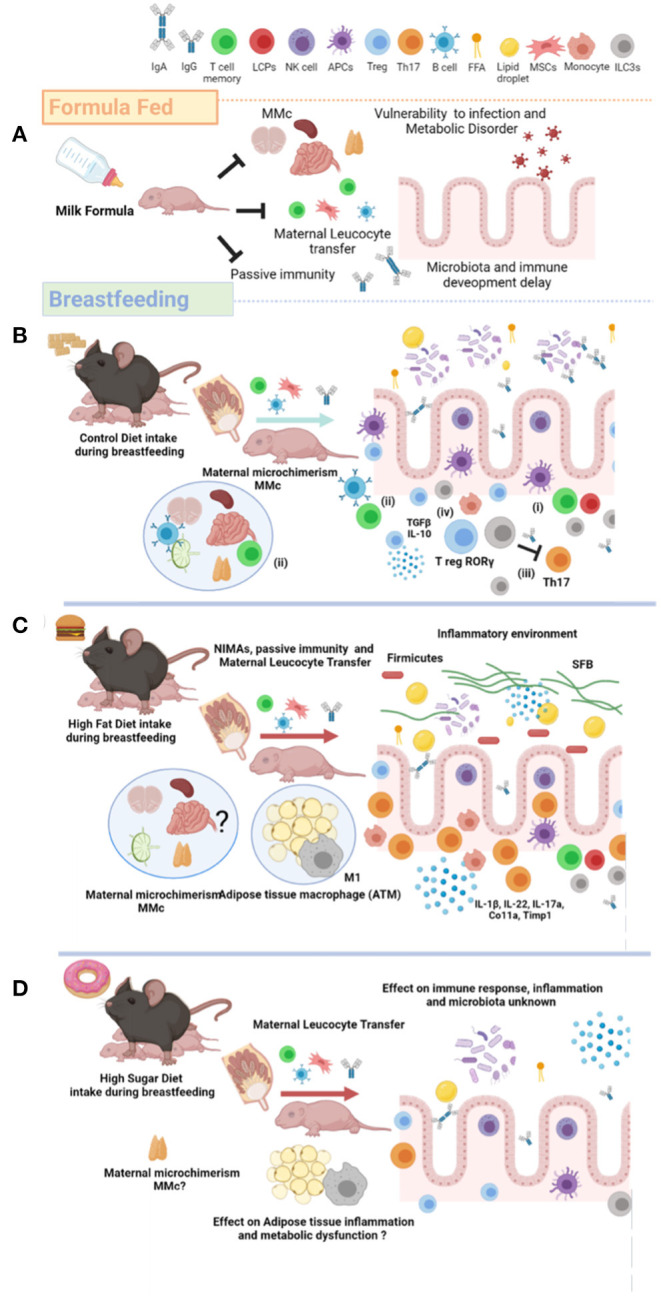Figure 2.

Maternal nutrition modulates breastfeeding composition and metabolic failure in the newborn. (A) Artificial milk feed formula does not promote innate and adaptative immune activation, maternal MMc, and gut microbiome development in the newborn. Defective immunological system leads to offspring vulnerability against viral and bacterial infection. (B) Breastfeeding from lean mothers or healthy maternal nutrition induce maternal antibodies (passive immunity), NIMAs, and leucocyte maternal transfer. Additionally, breastfeeding favors several cell mechanisms involved in immunogenic tolerance: (i) altered antigen presenting, (ii) specific T- and B-subtypes on MMc, (iii) Th17 cells suppression by ILC3s, and (iv) accumulation of T-regulatory cells and microbiota invasion. (C) HFD exposure during breastfeeding reduces ILC3s and Treg, and increases the TH17 I the gut. Breastfeeding of mothers exposed to HFD also increase the inflammatory cytokine profile, and SFB colonization and firmicutes in the gut of newborn. Also, HFD exposure during breastfeeding increases the M1/M2 macrophages ratio in adipose tissue (ATM). The effect of high fat diet (HFD) exposure during breastfeeding on the MMc has not been totally described. (D) The effect of high sugar diet on immunological programming in the newborn has not been totally described. MMc, Maternal Microchimerism; NIMAs, Non-Inherited Maternal Antigens; ILC3s, Type 3 Innate Lymphoid Cells; HFD, High Fat Diet; ATM, Adipose Tissue Macrophage; SFB, Segmented Filamentous Bacteria; FFA, Free Fatty Acid; HSD, High Sugar Diet; Treg, T-regulatory; Th17, T-helper 17; MSCs, Mesenchymal Stem Cells. Created by Biorender.
